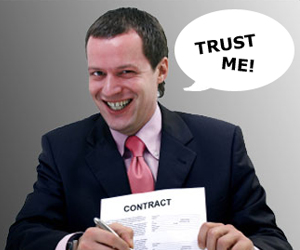Introduction
Selling a timeshare can often prove to be a daunting task, leaving owners frustrated and perplexed by the lack of success. Numerous factors contribute to the difficulty of selling timeshares, and understanding these challenges is essential for individuals seeking to navigate the resale process successfully. In this article, we will explore the reasons why selling timeshares can be challenging and provide relevant statistics to shed light on this issue.
1. Market Saturation and Oversupply
One significant hurdle in selling timeshares is the sheer number of units available on the market. Over the years, timeshare resorts have proliferated, leading to an oversupply of properties. This saturation can result in increased competition among sellers, making it harder to attract potential buyers. According to industry reports, the oversupply of timeshares has led to a buyer’s market, where purchasers have the advantage of selecting from a wide range of options, putting pressure on sellers.
2. Fluctuating Market Demand
Timeshare resale values are closely tied to market demand, which can be influenced by economic conditions, travel trends, and shifts in consumer preferences. During economic downturns, discretionary spending on luxury items like timeshares often decreases, causing a decline in demand. The COVID-19 pandemic, for instance, had a profound impact on the travel and leisure industry, affecting timeshare sales and values. A survey conducted by ARDA (American Resort Development Association) in 2020 indicated a decrease in sales due to the pandemic’s impact on travel.
3. Unpredictable Maintenance Fees
Maintenance fees associated with timeshares can deter potential buyers. While these fees cover property upkeep and amenities, they can be perceived as an ongoing financial commitment, often deterring buyers who are seeking cost-effective vacation options. Additionally, maintenance fees can increase over time, further complicating the resale process. According to a study by ARDA, nearly 40% of timeshare owners cited maintenance fees as a reason for wanting to sell.
4. Negative Reputation and Scams
The timeshare industry has faced its share of negative publicity due to aggressive sales tactics, misleading information, and fraudulent resale companies. As a result, potential buyers may approach timeshare resale offers with skepticism. Reports of scams and unethical practices have created a sense of distrust, making it harder for legitimate sellers to gain the trust of buyers. This reputation challenge was reflected in a 2019 Consumer Reports survey, where timeshares ranked as one of the least satisfying vacation options.
5. Limited Exit Strategies
Timeshare contracts often come with stringent terms and conditions that can complicate the resale process. Some contracts contain clauses that give the resort the right of first refusal or impose restrictions on advertising and pricing. These limitations can restrict sellers’ flexibility and deter potential buyers who seek more straightforward and transparent purchasing processes.
6. Resale vs. Developer Prices
Prospective buyers might compare resale prices to developer prices when considering a purchase. Developer prices are often higher due to marketing expenses, sales commissions, and other costs. Resale prices, however, tend to be lower, causing buyers to hesitate in purchasing directly from developers. This dynamic can make selling your timeshare on the resale market more challenging, as buyers perceive the better deal in purchasing a resale.
Conclusion
Selling a timeshare can be a complex and challenging process, influenced by factors such as market saturation, fluctuating demand, maintenance fees, negative industry reputation, contractual limitations, and price differentials. To navigate these challenges successfully, it’s crucial to approach the resale process with a realistic mindset, informed by an understanding of the broader industry trends. While the resale market might present hurdles, there are alternative strategies like renting out your timeshare, participating in exchange programs, or seeking professional assistance from real estate agents specializing in timeshares. By acknowledging the challenges and exploring strategic alternatives, owners can increase their chances of finding a suitable buyer and achieving a successful resale.




